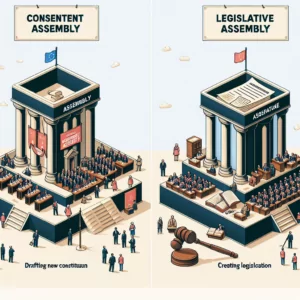Discovering the perfect time for a vacation can be as complex as choosing the destination itself. The most popular times for vacationing are during the summer and winter seasons. While these provide great opportunities for rest and recreation, both seasons offer unique experiences that merit consideration. Understanding the distinct features of both winter and summer vacations, as well as their advantages and disadvantages, can help you to make an informed decision regarding your future escapades. So what is the difference?
Understanding the Distinct Features of Winter and Summer Vacations
Winter vacations are usually associated with snow-filled activities and cozy indoor experiences. Popular winter destinations include ski resorts, where vacationers can partake in skiing, snowboarding, and other snow activities. Additionally, this season gives vacationers the chance to visit Christmas markets in European countries, or simply enjoy the beautiful winter landscapes like the Northern Lights. On the other hand, winter vacations can also mean escaping to a warm destination to break the monotonous winter chill.
In contrast, summer vacations typically involve beach trips, outdoor adventures, and cultural festivals. This vacation season is ideal for those looking to enjoy the sun, sand, and sea. Whether it’s visiting tropical islands, hiking through national parks, or attending music festivals, there are numerous activities to enjoy during the summer. The long daylight hours also contribute to the appeal of summer vacations, as they allow more time for sightseeing and exploration.
Comparing the Advantages and Disadvantages of Seasonal Getaways
Winter vacations offer unique experiences that can only be enjoyed in cold weather, such as ice-skating, sledding, or building snowmen. They also provide an opportunity to enjoy the festive atmosphere of holiday markets and winter wonderlands. However, winter vacations can also come with some downsides. Traveling during this season can be unpredictable due to the increased likelihood of flight cancellations and delays due to harsh weather conditions. Also, the days are shorter, leaving less daylight for outdoor activities.
On the other hand, summer vacations often provide more flexibility in terms of activities. The warm weather allows for a wider range of outdoor activities, such as swimming, hiking, and camping. The longer daylight hours also provide more opportunity for sightseeing. However, summer vacations also have their disadvantages. Popular destinations can be crowded, leading to long queues and higher prices. The summer heat can also be intense, which may not be suitable for everyone.
In conclusion, the choice between a winter or summer vacation depends on your personal preferences and the specific experiences you wish to enjoy. Winter vacations offer a range of unique, cold-weather activities and cozy experiences, but are subject to unpredictable weather and shorter days. Summer vacations, on the other hand, offer a broad selection of outdoor activities and long days for exploration, but can come with crowds and intense heat. Carefully weigh the advantages and disadvantages of both to choose the vacation that best suits your taste and lifestyle. Regardless of the season, the most important thing is to relax, rejuvenate and enjoy your time away.
Check out this one Camping vs Staying in Hotels, you might like it 🙂 Here’s a nice blog we found on this topic.












